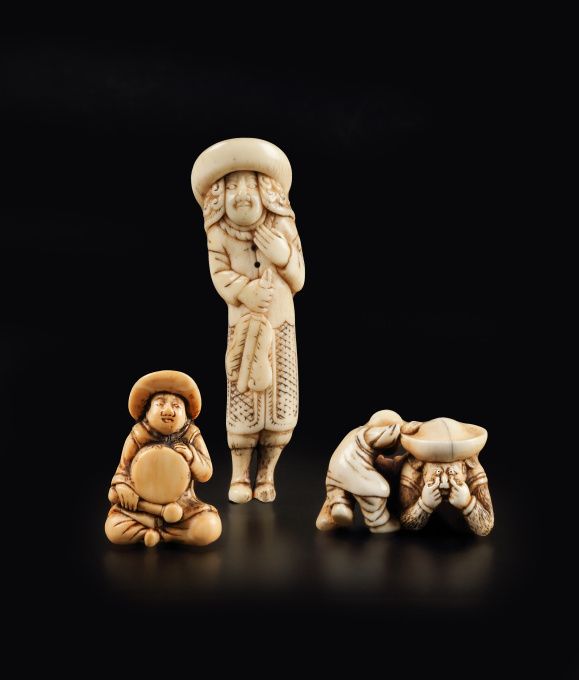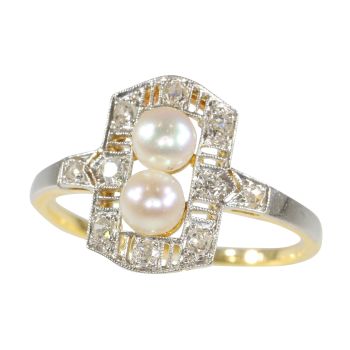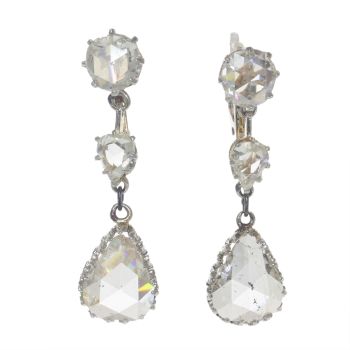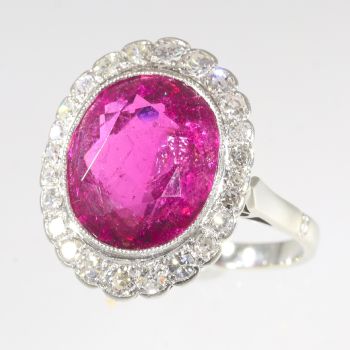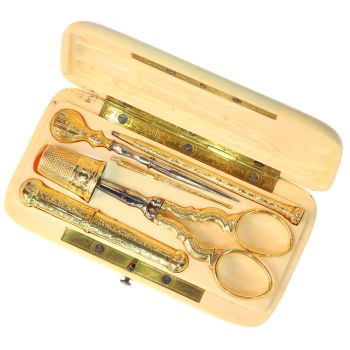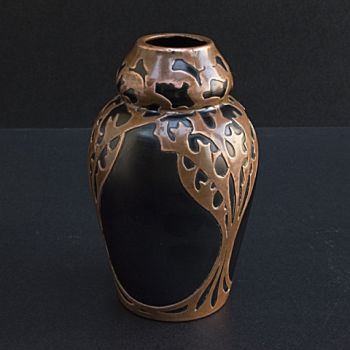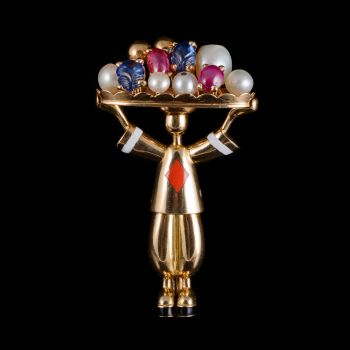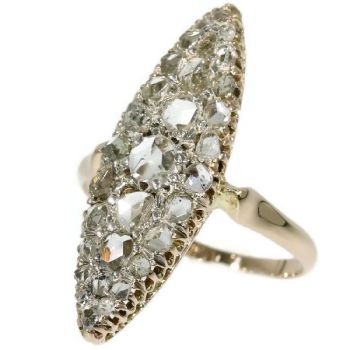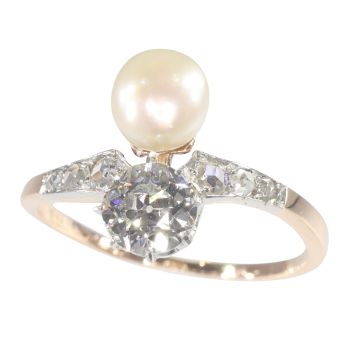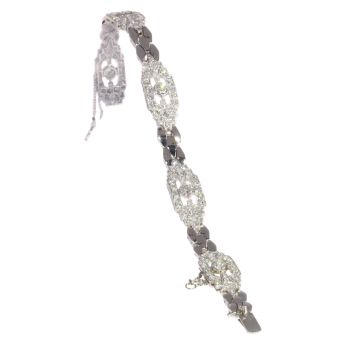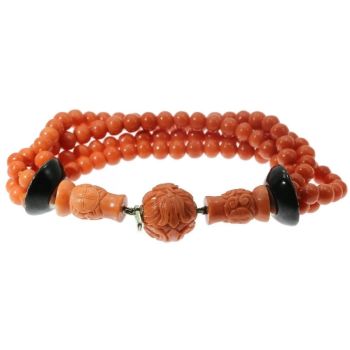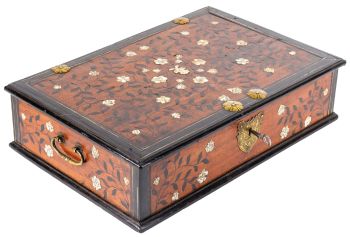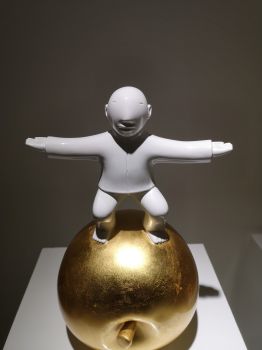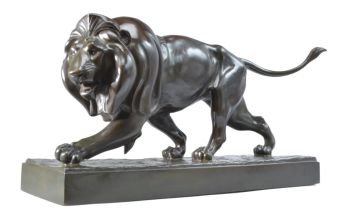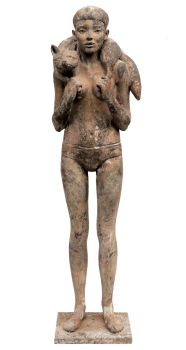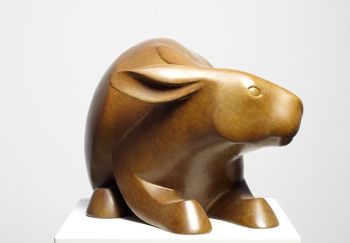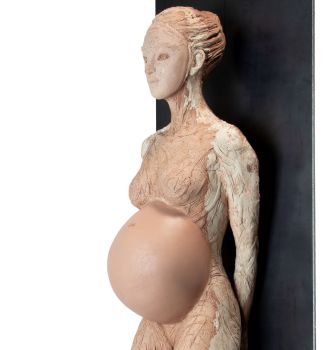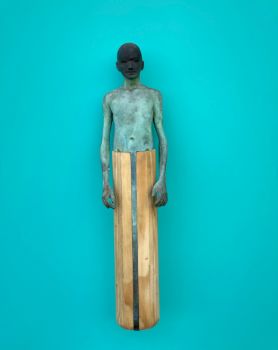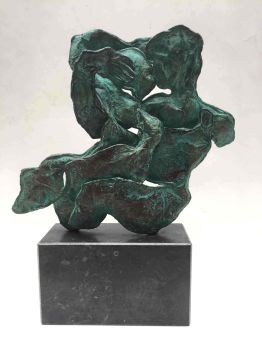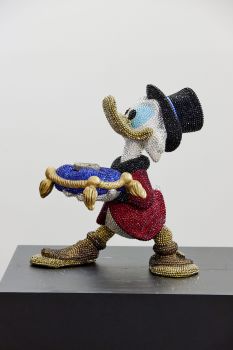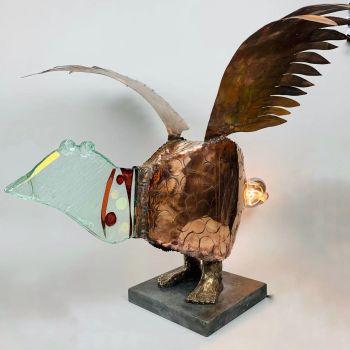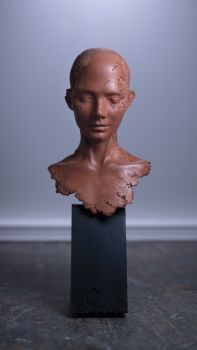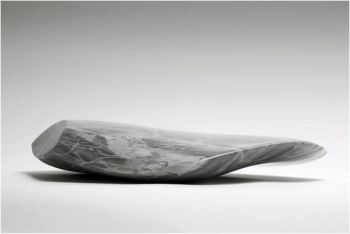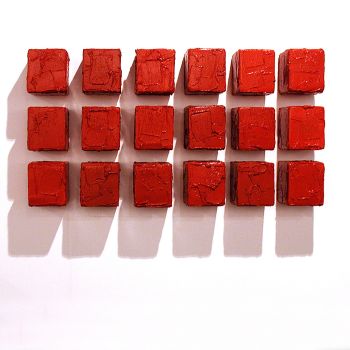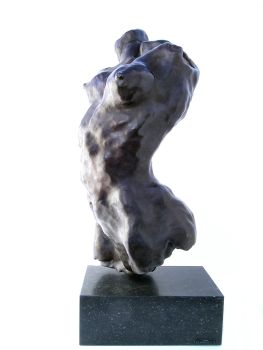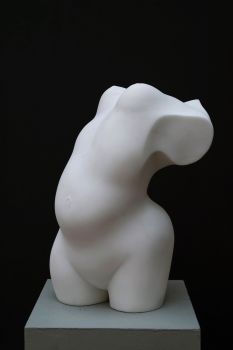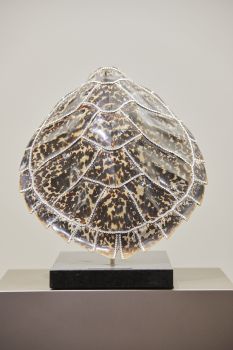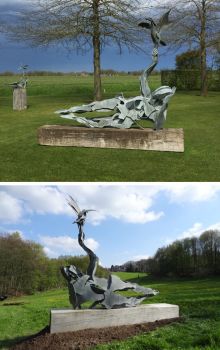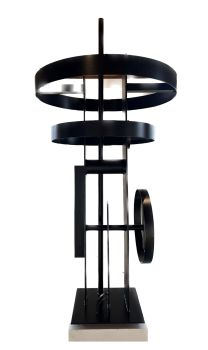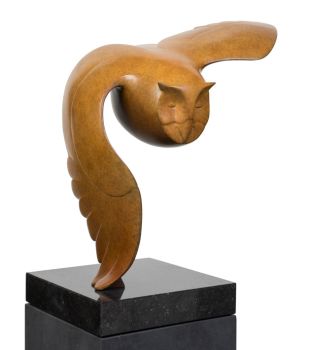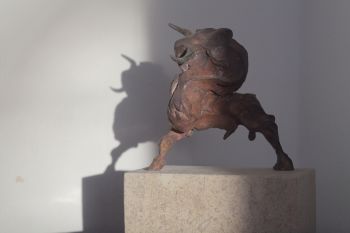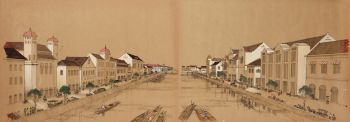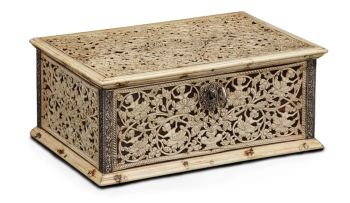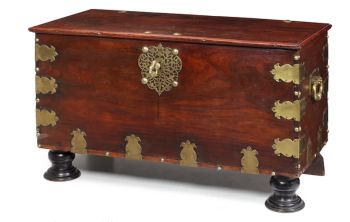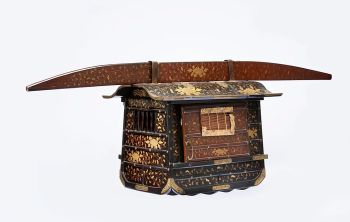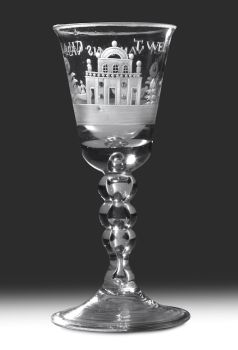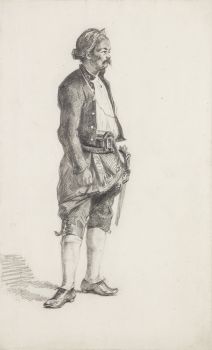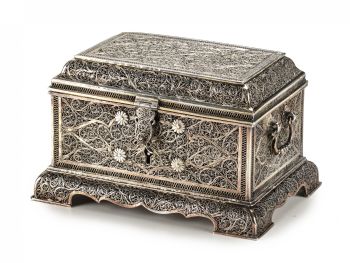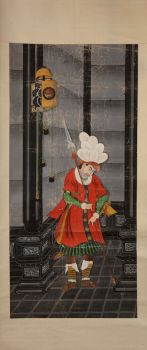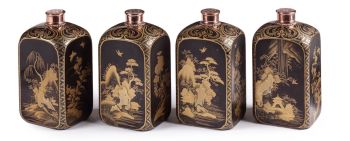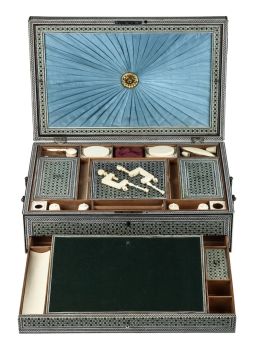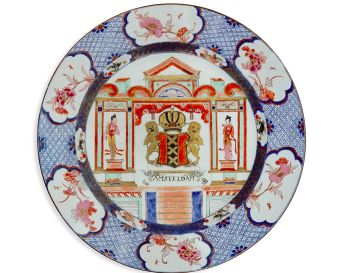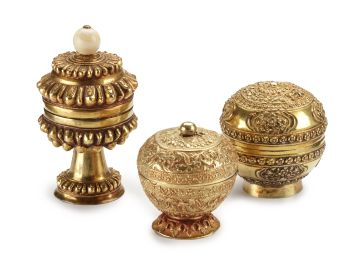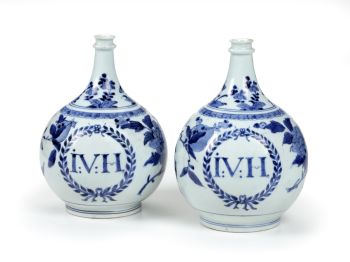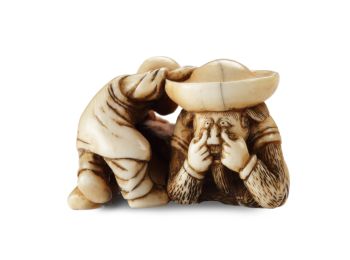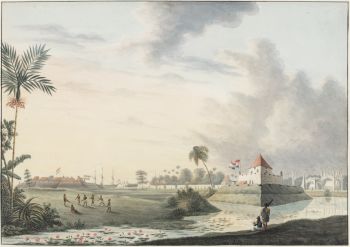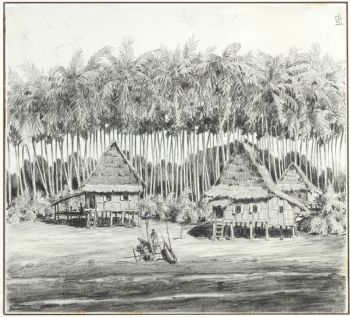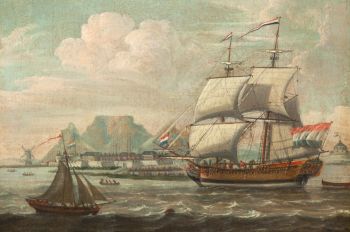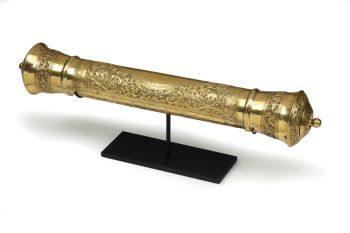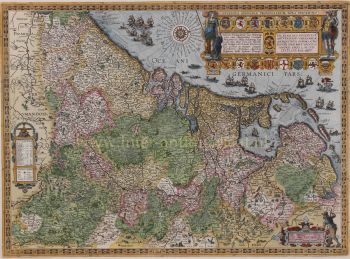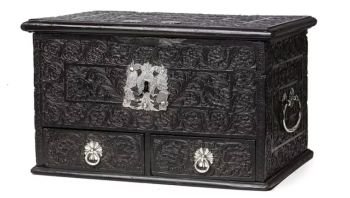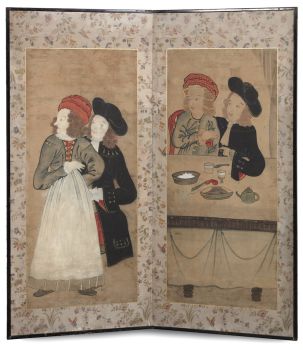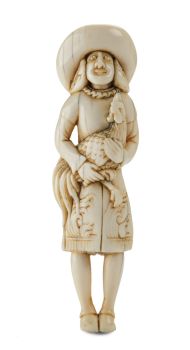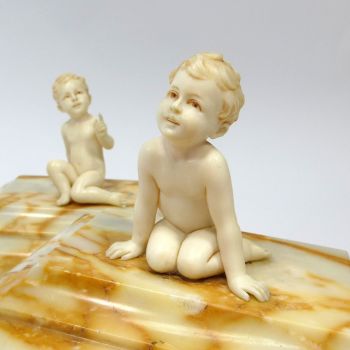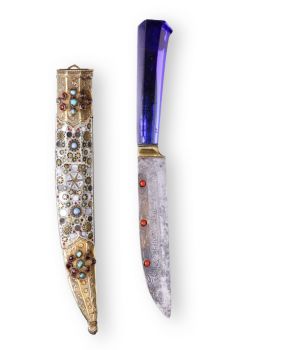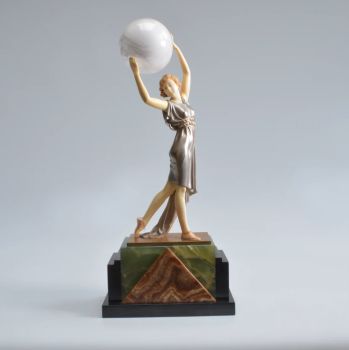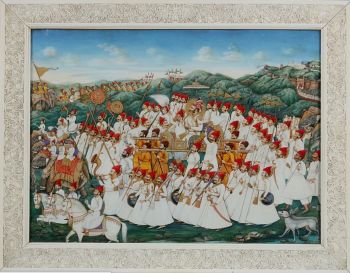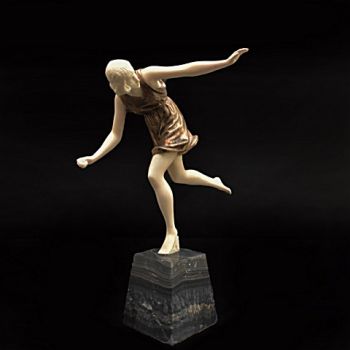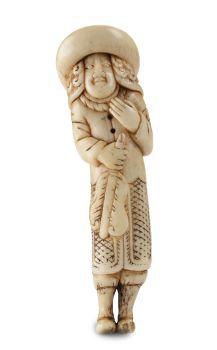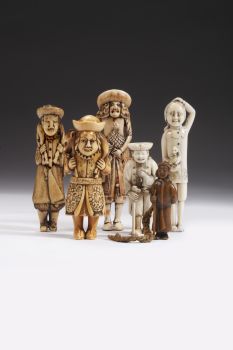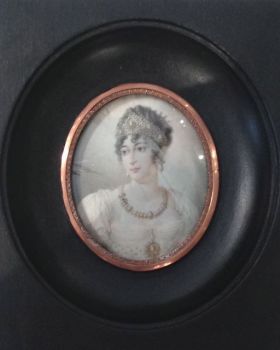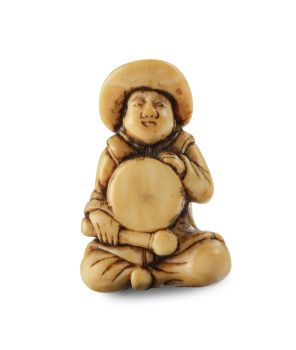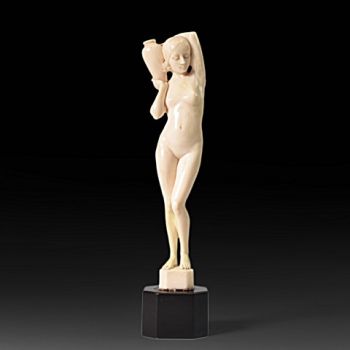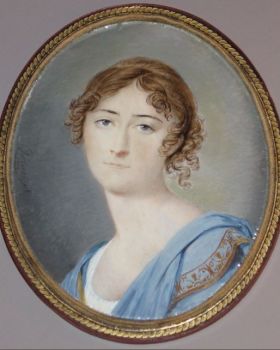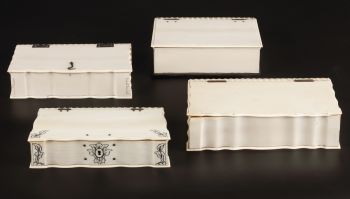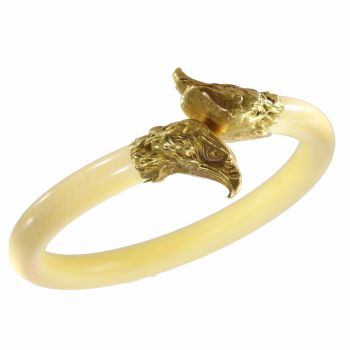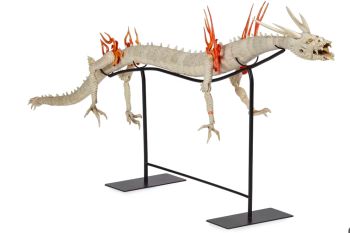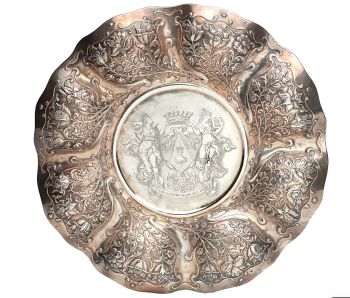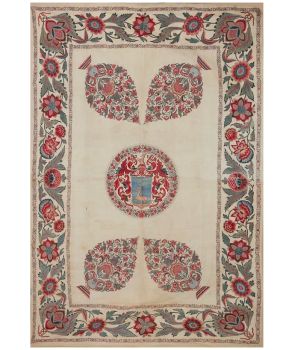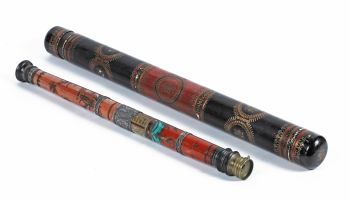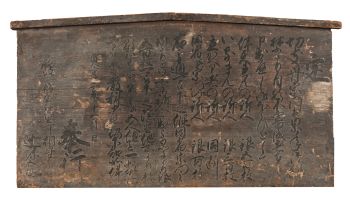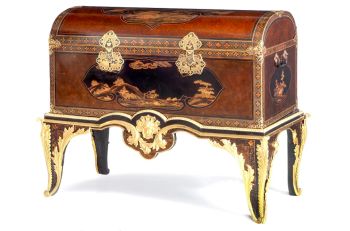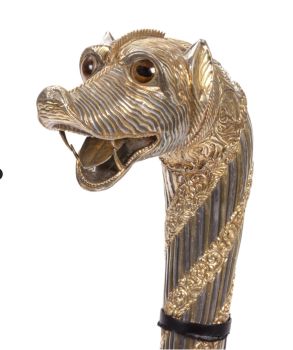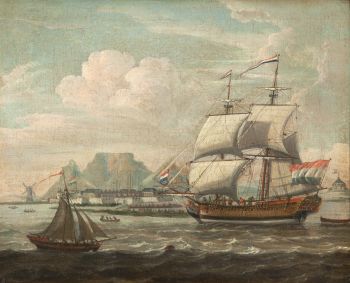Holandeses em miniatura 18th century
Artista Desconhecido
Osso
8 cm
Preço em pedido
Zebregs & Röell - Fine Art - Antiques
- Sobre arte
The portrayal of the Dutch by Japanese netsuke artists was popular in the 18th century and presents us with a fascinating insight into the Japanese perceptions of things foreign.
Foreigners, Ebisu, were considered bringers of good fortune, possessing magical power because they came from an unknown land and they came to be worshipped as deities. Netsuke of Dutchmen, therefore, were not only depictions of exotic appearances but probably had a talismanic function, such as warding off evil spirits, as well (Japan Envisions the West, 16th-19th Japanese Art from the Kobe City Museum).
Netsuke depicting Dutchmen constitute a clearly recognizable group of netsuke; Dutchmen are long, goggle-eyed, bow-legged, with a large nose and bad teeth. They wear a wide-brimmed hat with a feather or tassel, a bowler-hat or a seaman’s cap, a long coat decorated with Chinese motives of dragons, clouds or waves, over knickerbockers and long buttoned socks in low shoes
The portrayal of the Dutch by Japanese artists was popular from the late 18th and during most of the 19th century and presented us with a fascinating insight into the Japanese perception of things foreign. In many Japanese communities, mainly in the south, based on old myths and accessible wisdom, foreigners coming by ship from the South, were considered bringers of good fortune, possessing magical powers and coming from unknown southern lands. Netsuke of Dutchmen, therefore, were not only depictions of the exotic appearances of Westerners, but probably had talismanic functions as well, such as warding off evil and bringing wealth (for more netsuke of Dutchmen see Uit Verre Streken, November 2018). After Japan had been forced, in the 1850s, to open the country to Western powers, Japan quickly modernized, and the Japanese also started to adopt western clothing. This made an end to the use of and to a large extent to the making of netsuke and inro. - Sobre artista
Pode acontecer que um artista ou criador seja desconhecido.
Algumas obras não devem ser determinadas por quem são feitas ou são feitas por (um grupo de) artesãos. Exemplos são estátuas dos tempos antigos, móveis, espelhos ou assinaturas que não são claras ou legíveis, mas também algumas obras não são assinadas.
Além disso, você pode encontrar a seguinte descrição:
•"Atribuído a …." Na opinião deles, provavelmente uma obra do artista, pelo menos em parte
• “Estúdio de…” ou “Oficina de” Em sua opinião um trabalho executado no estúdio ou oficina do artista, possivelmente sob sua supervisão
• "Círculo de ..." Na opinião deles, uma obra da época do artista mostrando sua influência, intimamente associada ao artista, mas não necessariamente seu aluno
•“Estilo de…” ou “Seguidor de…” Na opinião deles, um trabalho executado no estilo do artista, mas não necessariamente por um aluno; pode ser contemporâneo ou quase contemporâneo
• "Maneira de ..." Na opinião deles, uma obra no estilo do artista, mas de data posterior
•"Depois …." Na opinião deles uma cópia (de qualquer data) de uma obra do artista
• “Assinado…”, “Datado…” ou “Inscrito” Na opinião deles, a obra foi assinada/datada/inscrita pelo artista. A adição de um ponto de interrogação indica um elemento de dúvida
• "Com assinatura ….”, “Com data ….”, “Com inscrição ….” ou “Tem assinatura/data/inscrição” na opinião deles a assinatura/data/inscrição foi adicionada por outra pessoa que não o artista
Você está interessado em comprar esta obra de arte?
Artwork details
Related artworks
- 1 - 4 / 12
- 1 - 4 / 24
Artista Desconhecido
UM MODELO JAPONÊS DE UM NORIMONO, UM PALANQUIM1650 - 1700
Preço em pedidoZebregs & Röell - Fine Art - Antiques
Shiba Kokan
Pintura de um holandês fantásticoearly 19th
Preço em pedidoZebregs & Röell - Fine Art - Antiques
1 - 4 / 24Artista Desconhecido
IMPORTANTE E RARA GRANDE PINTURA DE 'ESTILO DE EMPRESA' ÍNDIO EM MARFIM QUE REPRESENTA UM DESFILE1850 - 1900
Preço em pedidoZebregs & Röell - Fine Art - Antiques
 Com curadoria de
Com curadoria deDanny Bree
Artista Desconhecido
Holandeses em miniatura (Netsuke)1700 - 1900
Preço em pedidoZebregs & Röell - Fine Art - Antiques
1 - 4 / 24Artista Desconhecido
Japanese transition-style lacquer coffer 1640 - 1650
Preço em pedidoZebregs & Röell - Fine Art - Antiques
Artista Desconhecido
An Indian part-gilt silver-clad ceremonial sceptre or mace with a tiger’s head1850 - 1900
Preço em pedidoZebregs & Röell - Fine Art - Antiques
 Com curadoria de
Com curadoria deDanny Bree
Dutch School
Chegada de um índio oriental holandês na Baía da Mesa18th century
Preço em pedidoZebregs & Röell - Fine Art - Antiques
1 - 4 / 12

